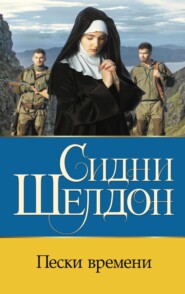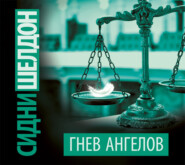По всем вопросам обращайтесь на: info@litportal.ru
(©) 2003-2025.
✖
The Other Side of Me
Настройки чтения
Размер шрифта
Высота строк
Поля
This is an excerpt from a letter to my parents, dated November 2, 1936:
I want all of you to be as happy as possible. My happiness is an elusive balloon, waiting for me to grab it, floating from side to side with the wind, across oceans, big green meadows, trees and brooks, rustic pastoral scenes and rain-swept sidewalks. First high, barely visible, far out of reach, then low, almost within reach, blown here and there by the vagaries of a playful wind, a wind one moment heartless and sadistic, the next gently compassionate. The wind of fate, and in it rests our lives.
One morning, in the lobby of the YMCA, I saw a young man about my age sitting on a couch, furiously writing. He was humming a melody, and seemed to be writing a lyric. I walked up to him, curious.
‘Are you a songwriter?’ I asked.
He looked up. ‘Yes.’
‘So am I. Sidney Sheldon.’
He held out a hand. ‘Sidney Rosenthal.’
That was the beginning of a long friendship. We spent the whole morning talking and it was as though we were soul mates.
When I went to work the following day, the theater manager called me into his office. ‘Our barker is sick. I want you to get into his uniform and take his place until he gets back. You’ll work days. All you have to do is walk up and down in front of the theater and say, ‘‘Immediate seating. No waiting for seats.’’ The job pays more.’
I was thrilled—not because of the promotion, but because of the raise. I would send the extra money home.
‘How much does it pay?’
‘Fifteen-forty a week.’
A dollar a week raise.
When I put on the uniform, I looked like a general in the Russian army. I had nothing against my job as a barker, but could not stand the boredom of saying, ‘Immediate seating—no waiting for seats,’ over and over and over. I decided to dramatize it.
I began to yell, in a stentorian voice, ‘An exciting double feature—The Texas Rangers and The Man Who Lived Twice. How does a man live twice, ladies and gentlemen? Come in and find out. You’ll have an afternoon you will never forget. Absolutely no waiting for seats. Hurry, before we’re sold out!’
The real barker never did show up and I kept the job. The only difference from before was that I now worked mornings and early afternoons. I still had time to go see all the music publishers who were uninterested in my songs. Sidney Rosenthal and I wrote a few songs together. They received a lot of praise and no contracts.
At the end of the week I would usually find myself with only ten cents in my pocket. I had to get from the theater to the Brill Building, and I had to decide whether to have a hot dog for five cents and a Coca-Cola for five cents and walk the thirty-five blocks, or have a hot dog, no Coke, and take the subway uptown for a nickel. I got used to alternating the routine.
A few days after I started working as a barker, business at the theater began to pick up.
I was out in front of the theater, yelling, ‘You won’t want to miss Conquest, with Greta Garbo and Charles Boyer. And there’s another treat for you—Nothing Sacred, with Carole Lombard and Fredric March. These are the world’s greatest lovers, who will teach you how to be great lovers. And admission is only thirty-five cents. Two lessons in love for thirty-five cents. It’s the bargain of the century. Hurry, hurry, hurry, get your tickets now!’
And the customers came.
With the next films, I had even more fun. ‘Come and see the most fantastic double bill in the history of show business—Night Must Fall, with Robert Montgomery and Rosalind Russell. Keep your overcoats on because you’re going to get cold chills. And with it, as an extra treat, is the new Tarzan picture,’ at which point I gave a loud Tarzan yell, and I watched people from a block away turning around to see what was happening, and coming back toward the theater and buying tickets. The manager was standing outside, watching me.
At the end of the following week, a stranger walked up to me.
‘Where is the son of a bitch from Chicago?’
I did not like his tone. ‘Why?’
‘The manager of the RKO Theater chain told all the barkers we all have to come and watch the bastard and do what he does.’
‘I’ll tell him when he comes back.’ I turned away and said, in a conversational voice, ‘Immediate seating inside. No waiting for seats. Immediate seating inside. No waiting for seats.’
The advantage of working days was that while I still had time to see the music publishers, my evenings were free, and at least three times a week I went to the theater to see plays, sitting in the cheapest balcony seats. I saw Room Service, Abie’s Irish Rose, Tobacco Road, You Can’t Take It With You…The variety was endless.
Sidney Rosenthal, my new friend, had found a job, and one day he suggested, ‘Why don’t we pool our money and get out of this place?’
‘Great idea.’
One week later we left the YMCA and moved into the Grand Union Hotel on Thirty-second Street. We had two bedrooms and a living room, and after the little room at the YMCA it seemed like the height of luxury.
In a letter Natalie reminded me that we had a distant cousin living in New York who had a checkroom concession at the Glen Cove Casino, on Long Island. She suggested that I give him a call. His name was Clifford Wolfe. I called him and he could not have been more cordial.
‘I heard you were in New York somewhere. What are you doing?’
I told him.
‘How would you like to work in the checkroom for me, three nights a week?’
‘I’d love it,’ I said. ‘And I have a buddy who—’
‘I can use him, too.’
And so three nights a week Sidney Rosenthal and I went out to Long Island to the Glen Cove Casino and earned three dollars apiece checking hats and coats. We also scrounged as much food as we could from the buffet table.
A car carrying other employees of the casino picked us up and took us to Long Island, an hour and a half away. At the end of the evening, when we were through working, we were taken back to our hotel. The extra money I made I sent to Natalie. She invariably sent it back.
One evening, as I walked into the checkroom, Clifford Wolfe stared at me, frowning. ‘That suit you’re wearing…’ It was torn and shabby.
‘Yes?’
‘Don’t you have anything nicer?’
I shook my head, embarrassed. My wardrobe would have fit into a briefcase. ‘I’m afraid not.’
‘We’ll take care of that,’ he said.
The next night, when I arrived at Glen Cove, Clifford Wolfe handed me a blue serge suit and said, ‘I want you to go to my tailor and have this fitted for you.’
From that time on, whenever I went to Glen Cove I wore Clifford Wolfe’s suit.
The inexplicable changes in my moods continued. I was either unreasonably elated or suicidal. In an excerpt from a letter to Natalie and Otto, dated December 26, 1936, I wrote:
At the moment I haven’t much heart for this fight. Whether I am going to stick it out, I don’t know. If I were more sure of my ability, it would be so much easier.
One month later, I wrote:
Well, as far as songs are concerned, it looks as if we might click. Chappell heard one of our new numbers, told us to rewrite the bridge and bring it back. They are quite particular and their liking our numbers is encouraging.
I had had two episodes of my disc tearing loose, and both times I had been in bed for three days. It was in the middle of a period of euphoria that my future opened wide. It was on one of my rounds in the Brill Building that I encountered a short, dapper man with a friendly smile. I had no idea then who he was. He happened to be in the Remick office when the manager was listening to one of my songs.

















